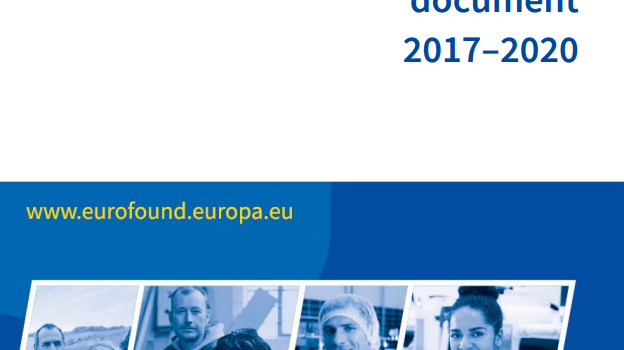
News -
European Statistics Day: Get your facts straight with Eurofound
20 October is European Statistics Day, an initiative of the European Statistical Advisory Committee (ESAC) and with the support of the members of the European Statistical System and the European System of Central Banks.
Eurofound's role is to provide information, advice and expertise – on working conditions and sustainable work, industrial relations, labour market change and quality of life and public services – for key actors in the field of EU social policy on the basis of comparative information, research and analysis. Providing accurate and reliable information is at the core of what we do, and our unique added value, as defined by key stakeholders, lies in the provision of EU-wide comparative coverage and the reliability of the data provided.
Please find below an overview of the different data resources that we provide on living and working in Europe. For more in-depth information and analysis on trends in your country contact information@eurofound.europa.eu.
Data explorer
European Working Conditions Survey
Visualise, explore and compare EU and country data from the 2015 European Working Conditions Survey (EWCS) in our interactive data visualisation tool. 2010 data is also available.
European Company Survey
Visualise, explore and compare EU and country data from the 2013 European Company Survey (ECS) in our interactive data visualisation tool.
European Quality of Life Survey
Visualise, explore and compare EU and country data from the 2012 European Quality of Life Survey (EQLS) in our interactive data visualisation tool. 2007 and 2003 data is also available.
European Jobs Monitor
The European Jobs Monitor (EJM) tracks structural change in European labour markets. It analyses shifts in the employment structure in the EU in terms of occupation and sector and gives a qualitative assessment of these shifts using various proxies of job quality.
Other resources
Collective wage bargaining data
Explore Eurofound’s quantitative and qualitative information on collectively agreed pay developments from 1999 onwards and other related pay data.
European Industrial Relations Dictionary
The European industrial relations dictionary is a comprehensive collection of the most commonly used terms in employment and industrial relations at EU level today.
Tackling undeclared work
Eurofound's work on undeclared work has resulted in a database of case studies and a number of publications.
Restructuring events database
The restructuring events database contains factsheets with data on large-scale restructuring events reported in the principal national media in each EU member state. It has been in existence since 2002.
Database of wages, working time and collective disputes
This database aims to provide researchers and policymakers with a set of country-level data in the area of wages, working time and collective disputes.




